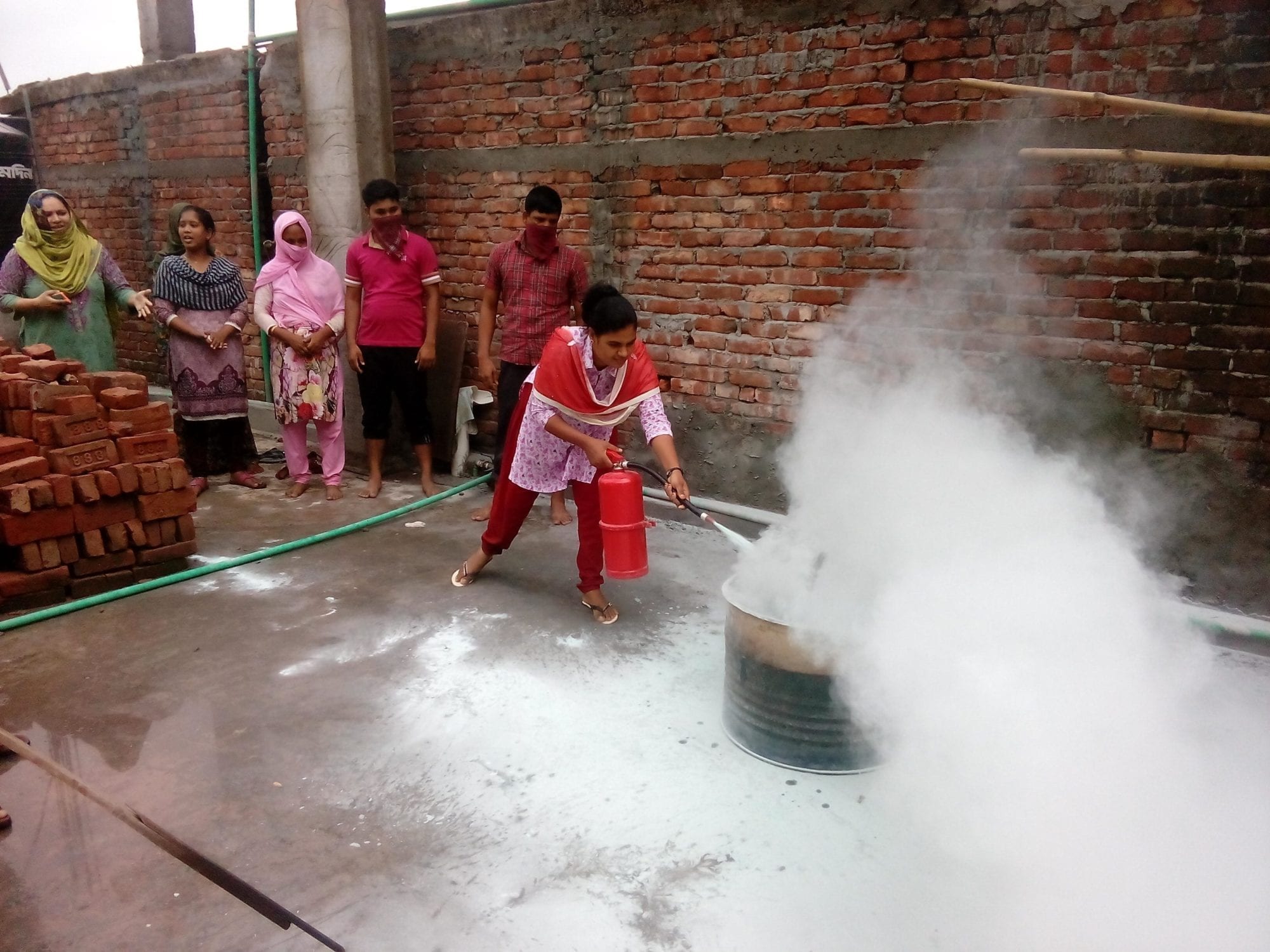In Dhaka, Bangladesh, this week, 50 children held torches alight, “beacons of life” to mark the four-year anniversary of the Rana Plaza building collapse that killed 1,130 garment workers—including their parents. Together with the National Garment Workers Federation (NGWF), which sponsored the event, the orphaned children prayed for their parents and stood vigil outside the Dhaka Press Club as union leaders vowed to never compromise when it comes to worker safety.
The Rana Plaza building, which housed five garment factories, collapsed April 24, 2013. Although the workers, mostly women, were evacuated because of cracks in the building the day before, managers forced workers into the building the next day, threatening their jobs if they failed to do so. Some 2,500 garment workers were injured—many of them losing limbs, and many more severely traumatized.
“If there was a union at Rana Plaza, (the collapse) may not have happened,” says Mohammad Ronju, a long-time organizer with the Bangladesh Independent Garment Workers Union Federation (BIGUF).
Garment Workers Empowered through Solidarity Center Safety Training
On World Day for Safety and Health at Work, as workers across the globe remember the dead and vow to fight for the living, a new Solidarity Center video highlights how Bangladesh garment workers are forming unions at considerable risk and negotiating for safer workplaces, better working conditions and dignity and respect on the job.
And many are doing so with the support of the Solidarity Center, which provides workers with the tools they need to improve their working and living conditions through a collective voice so that tragedies like Rana Plaza and the Tazreen Fashions factory fire never happen again. For instance, through Solidarity Center fire safety training, garment workers learn how to protect themselves and their workplaces, and advocate for safety and health improvements.
“After we completed 10 days of (fire safety) training, we could identify the risks around us,” union leader Saiful Islam says in the video. Following the training, Saiful and his co-workers talked with management and, ultimately, fire doors were installed and the building underwent fire and safety checks.
“We are able to talk to management about our different demands,” he says. “If there were no union, all these things would not be possible. A union is here, so these things are possible.”

